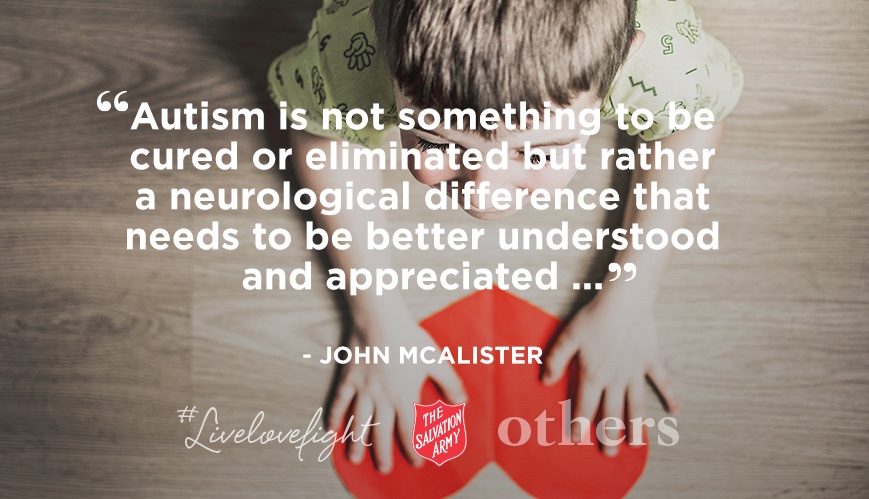Celebrating being uniquely human

Celebrating being uniquely human
30 June 2020
Autism is something that should be better understood and appreciated.
Just before my son’s first birthday, we visited the Vatican Museums while on a European family trip. While pushing his stroller along the corridors leading toward the Sistine Chapel, I watched his tiny hands flapping excitedly as he looked at the vibrant art that surrounded us. Filled with pride that my son seemed to be demonstrating an early appreciation for fine art and culture, I was taken aback when a woman approached me to share how she had always loved when her son had engaged in a similar stimming activity as a child. “Do you know much about autism?” she added.
This was the first time I’d heard the word ‘stimming’, which refers to self-stimulating behaviour, such as the use of repetitive actions or sounds. Although I quickly dismissed her uninvited examination of my son, two years later he received a clinical diagnosis of autism spectrum disorder (ASD), following concerns arising from speech delays, repetitive behaviours and limited social interaction with peers.
ASD encompasses a specific set of behavioural and developmental challenges that affect a person’s communication, social and play skills. Each person is unique, however, and displays their own combination of characteristics. As Dr Stephen Shore notes, “If you’ve met one individual with autism, you’ve met one individual with autism.”
My initial response to my son’s diagnosis was to try and fix it. I researched what I could do to make him better and registered him for applied behavioural analysis (ABA), which is the most widely used therapy for autism. It is viewed by many psychologists as the best method to improve social interactions, teach new skills and minimise negative behaviours in autistic children. However, as I took my son to his ABA therapy sessions, I started to feel uncomfortable about some of the process, particularly with the way that he was being rewarded with treats whenever he mastered tasks and goals that seemed focused mostly on having him behave in a more ‘normal’ fashion, rather than on helping him to explore his emotions or to grow and develop as a person.
As I looked into ABA further, I learned that some autistic adults view the experience quite harshly, even equating it to a form of abuse causing lasting emotional harm. While I do see the value that ABA can offer, especially in addressing some negative behaviours such as tendencies toward self-injury, I don’t think it should be used too readily to eliminate the ways that autistic children differ from neurotypical children.
For example, my son often experiences sensory overload, which can lead him to start stimming, particularly by flapping his hands. Does this action cause harm to others? No. So, why would it be necessary to reinforce over and over again from an early age that the ways in which he processes things, expresses his feelings and naturally moves his body, are wrong?
Why does society so quickly view autism as a problem or affliction to overcome? Every time my son tells me that he’s sorry for waving his hands or for talking to himself, I want to cry, because I know that someone, somewhere, has been telling him that what he’s doing, and who he is, is somehow wrong.
Autism is not something to be cured or eliminated but rather a neurological difference that needs to be better understood and appreciated, with all the beautiful strengths – and often painful weaknesses – that come with it. My son’s schoolteacher does this well, such as when she matches him up with a more socially adept peer who, in turn, benefits from my son’s reading and memorisation skills.
I now realise that when my son was diagnosed, I was the one who needed to be fixed and made better, not him.
I was too quick to mourn the expectations and dreams I was holding on to for him, instead of seeing the gift in front of me that God had placed in my life to protect, nurture and learn from. While not sugar-coating the significant challenges that autistic people and their families face every day, I am striving to embrace neurodiversity, celebrating the value, significance and contributions of every person and the varying ways in which they view and process the world around them.
This article appeared at salvationist.ca